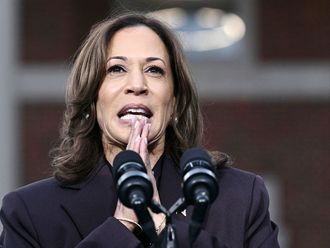
In promising to govern for all Brazilians, Dilma Rousseff, Brazil's president-elect, should try not to stray far from the policies of her predecessor, Luiz Inacio Lula da Silva.
During her campaign, Brazil's first female president has received the unabashed support of Lula who, despite having been barred by the Constitution from contesting for a third term, enjoys a popularity rating of 80 per cent in his country.
It is expected that Lula's shadow will be all pervading while Rousseff governs.
In many ways Lula will be a tough act to follow, but in ensuring that she sticks to his principles, especially market-friendly programmes and the alleviation of poverty, Rousseff can ensure her longevity. It is the simplest trick, given that her ascent to the post of president has been hard fought.
Rousseff, a former Marxist guerrilla who was imprisoned while opposing Brazil's military dictatorship, adopts a ‘take-no-prisoners' approach in most situations. But she must recognise that there are benefits in adopting a gentler approach.
While taking office, on January 1, 2011, it would behove Rousseff to choose her Cabinet with care — but always remembering that the strength of her credentials is entwined with the power of Brazil's economy. And in doing so she could preserve Lula's legacy and her own.








